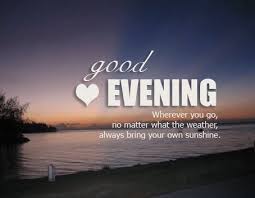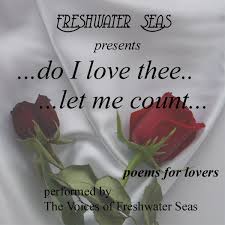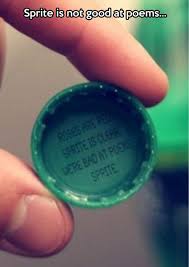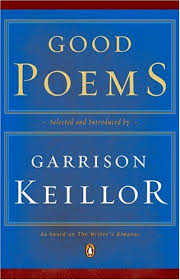Good Poems Biography
Source(google.com.pk)
“Christ is an astounding king, who instead of defending his people, deserts them. Whom he would save, he must first make a despairing sinner. Whom he would make wise, he must first make into a fool. Whom he would make alive, he must first kill. Whom he would bring to honour, he must first bring into dishonour. He is a strange king who is nearest when he is far and farthest when he is near”.
God bless all poets,
Peter and S.D.
['Beginning my studies the first step pleas'd me so much,
I have hardly gone and hardly wish'd to go any further,
But stop and loiter all the time to sing it in ecstatic songs'. - Walt Whitman.]
['The Coming Of The Poem -
A poem has got to be born
It cannot come out when you want it to;
It must be born.
When you want to make a poem you cannot make it,
But when you do not want to make it, it comes'
By Gillian Hughes, aged 8.
From 'Those First Affections, an anthology of poems composed between the ages of two and eight.']
About my poem “I Thought about you”.
“I Thought about you” came to me when I was sitting alone in bed one night trying to write poetry. It came to fill the empty space next to me. My wife was in her home country awaiting the granting of a visa to return and live with me. (We had met while she was holidaying on a tourist visa.) Because of the intense drama and uncertainty involved in our separation I had been thinking about her constantly during the whole of this time. I was very lonely, very desperate and I had come to believe totally in the potential of words.
P.S.
About my poem “The Witch Doctor’s Son”.
My local newspaper was running a Short Story Contest. They wanted short short stories of exactly 50 words (not including the title) . I decided to enter the contest and sat down to write my 50 word short short story. After about 45 minutes I had completed a short short story of which I wasn’t happy with but which satisfied the 50 word criteria. I was tired and walking out of the door of my room when I had the feeling I had to write something. I sat down and wrote “The Undertaker’s Widow”. It came out fast and in one draft and at exactly 50 words. That was much better than my first attempt, and I thought I was completely happy with it. As I was halfway out the door again another feeling that I had to write something came to me. No words, just the feeling. I sat down and wrote “The Witch Doctor’s Son”. It came out fast and in one draft, and, as with “The Undertaker’s Widow”, without any changes and at exactly 50 words. “The Undertaker’s Widow” is about my mother, and “The Witch Doctor’s Son” is about my father and myself. I was a young man and my father was very ill and near the end of his life when these prose poems were written.
“All my writing is a completion of the work my father started”.
P.S.
About my poem “If I Say”.
“If I Say” is about the hard words “I Love you”. As Charles Bukowski wrote in his poem “Confession” – “….the hard words I ever feared to say….”. It’s about beginnings and endings and about poetry itself and what it means. I’ve always thought of a poem as a beginning, as Walt Whitman wrote in “Song of Myself” – “Beginning my studies the first step pleased me so much, ….. I have hardly gone and hardly wish’d to go any further, But stop and loiter all the time to sing it in ecstatic songs”. What I’ve always sort in poetry is truth. The style of writing, or the “beauty” of the poem itself, means nothing to me. Only the beauty to be found within the words.
If I Say
Doesn’t it change
The course we’ve taken
If I say
I Love you?
Doesn’t it mean
The end of what we had
If what we had
Was a beginning?
The poem is about moving from poetry to prose. From the beginning to what’s next. All done by the words “I Love you”, if those words are said. It’s about the potential of words and their impact on our lives.
P.S.
About my poem “Wish Upon”.
“Wish Upon” is a rhyming poem and I felt, as I was writing it, somewhere between prose and poetry. The inspiration behind the poem is expressed in the last line, “Let our Love guide the star”. When my wife and I were yet to find security in our relationship, when the height of intensity in our Love for each other coincided with the greatest insecurity, I felt that what we were going through was not limited to us and our experience but was universal, and that elemental forces were at play. Furthermore, that the decisions we made, the faith we kept, influenced those forces. That they were watching us to see what we would do.
P.S.
About my poem “Within Your Eyes”.
“Within your eyes” is about discovering that my wife is the most beautiful woman in the world. It was written in response to some unkind words written about her on a poetry website. It is a rhyming poem and took five days to write. With many stops and starts. I knew there was a truth there, but it wasn’t until about a year after I had written the poem that I realised that truth myself. The poem led me to what my mind had no hope of understanding on its own.
P.S.
About my poem “I Have Not Forgotten You”.
This poem builds to an ending that emphasises what had preceded it and accelerates from there. “For in truth you are rare/Each thought I have spare”. Thoughts of my wife, and our time together, occupy each thought I have ”spare”. She is indeed rare to be everywhere.
The tears well up, and scarce could she not moan
When father, brother, husband, all have died.
She now has no possessions, neither home,
But travels to a distant, unknown land:
Once so secure, yet now compelled to roam;
Once rich in love, she treads through foreign sands.
Her weary feet move forward but by faith;
For all left to her name is mere belief:
Mind, heart so far away she seems a wraith-
Love, happiness- all taken by a thief.
When, sometime since, her heart had broke in two,
The path of life, once single, parted way;
Forsake she could, but this she would not do-
All else was gone- with mother she would stay:
"Intreat me not to leave thee," was her plea,
"For whither thou wilt go, there will I; pray
Forbid me not to follow after thee,
For where thou lodgest I would also stay:
"Thy people shall be mine, thy God my God;
And where thou liest, I will gladly lie
Beside thee, overhead the selfsame sod;
That even then thou mightest be closeby.
"And so they twain walk on, hand clasped in hand;
Both hold the only thing they yet possess:
The younger but a stranger in the land,
An enemy, a widow in distress.
She rose before the sun to find a place
Where she might gather barley ears and wheat;
A field where she might find some needed grace
To gather for their winter store of meat:
Then Boaz comes from Bethlehem, and see,
He tarries with the reapers of the wheat:
He comes to Ruth and says, "Hear'st not thou me?
Remain until the harvest is complete:
"Go not from hence, but in my fields abide,
And let thine eyes be on the field they reap;
Behold, these maidens thou may'st work beside,
And near the reapers thou may'st ever keep."
Then to her face she fell, and wond'ringly
Asked why to her, a stranger, was so kind;
And he replied that she unfailingly
Had cleaved unto her mother with one mind,
And left her father, mother, and the soil
Of her nativity, and kissed the dust
Of some strange land wherein she meant to toil;
Forsaking gods of Moab God to trust:
"The Lord," said he, "reward thee for thy deeds,
And recompense thy labour and thy love:
The God of Israel answer all thy needs,
And make his wings a shelter from above."
Then said the maid, "My lord, please let me find
Some grace and favour in thy blessed sight,
For that thou hast been friendly, spoken kind,
And I am but a stranger in the night."
Then Boaz said, "At mealtime here abide;
Rest in the shade, come, sit with us and dine:
So down she sat, a reaper on each side;
She ate her wheat and dipped her bread in wine.
Then Ruth arose, and to her work she leaves:
The master thus commands his servant men,
"Let this young maid glean e'en among the sheaves;
Rebuke her not, for she shall come again;
And let some handfuls fall onto the ground,
There let them lie for my sake and for hers
That she may glean and plenty may be found;
For reasons she has need of it are pure."
And as she worked, Ruth knew not what a sight
Of beauty and of diligence she made,
As in the golden field in sunset's light
She bowed her head and knelt as if she prayed.
It came to pass that in his fields she stayed
Until the end of barley harvest came,
When mother told the lovely little maid
To seek for his provision and his name.
She washed and dripped an oil filled with sweet
Perfumes of wild roses on her face:
She had not much; her beauty was complete
With but her finest clothes to seek his grace.
Her braided hair shone brighter than the gem
That never graced her soft and shapely form;
Her eyes, they sparkled brighter than the hem
Of gold and pearls that she had never worn:
Thus Ruth went down unto the threshing floor
Where Boaz winnowed barley till the night,
And peeked at him so shyly 'round the door;
She never let him leave her searching sight.
His workday done, the master ate and drank;
With happiness his heart was full when fed:
Then by a heap of wheat he went and sank
Into the furry robes that made his bed;
And Ruth, a while watching till he sleep
Kept vigil from a stone used as a seat,
Till when his eyes had closed and sleep was deep
She lifted up the cover from his feet
And softly laid her down and dreamed of brides
Until the watchman struck a dozen beats,
And being startled, Boaz woke and spied
A woman sleeping at his very feet:
"Who art thou?" queried he in sleepy voice;
"Thine handmaid, Ruth," was her unsure reply;
Then blessed he her for wise and kindly choice,
For passing poor and rich young fellows by.
"And now, my daughter, gladly shall I do
According to thy wishes, for all here
Consider thee as virtuous and true;
Howbeit, there is one to thee more near,
A kinsman who must duly have his say:
If he decline, then rest assured I will
Perform the part of kinsman." So she lay
Down at his feet, and both were quiet, still.
In grey of early morning she arose,
Before a face could be discernéd there;
To keep from what some people might suppose
And who might stand along the road to stare:
Then Boaz said, "Bring here the vail thou hast
Upon thy head and hold it in thy hand:
Six times the barley measure filled and passed
From heap to vail as much as she could stand.
Then Boaz went up to the city gate
To find the nearer kinsman, whom he sought,
To see if he would purchase the estate
Of Ruth, and she herself, but he could not;
So Boaz purchased all the widows' land;
The houses, barns, and fields, though overgrown;
And bought what pleased him most, Ruth's comely hand
To cherish and to make his very own:
Then Boaz went to find the handmaid, Ruth
And lift her from a servant to a wife;
To love her in all tenderness and truth
In every day God blessed them both with life.
Good Poems Poems About Love For Kids About Life About Death About Friendship For Him About Family Tumblr For Her About Nature

Good Poems Poems About Love For Kids About Life About Death About Friendship For Him About Family Tumblr For Her About Nature

Good Poems Poems About Love For Kids About Life About Death About Friendship For Him About Family Tumblr For Her About Nature

Good Poems Poems About Love For Kids About Life About Death About Friendship For Him About Family Tumblr For Her About Nature

Good Poems Poems About Love For Kids About Life About Death About Friendship For Him About Family Tumblr For Her About Nature

Good Poems Poems About Love For Kids About Life About Death About Friendship For Him About Family Tumblr For Her About Nature

Good Poems Poems About Love For Kids About Life About Death About Friendship For Him About Family Tumblr For Her About Nature

Good Poems Poems About Love For Kids About Life About Death About Friendship For Him About Family Tumblr For Her About Nature

Good Poems Poems About Love For Kids About Life About Death About Friendship For Him About Family Tumblr For Her About Nature

Good Poems Poems About Love For Kids About Life About Death About Friendship For Him About Family Tumblr For Her About Nature

Good Poems Poems About Love For Kids About Life About Death About Friendship For Him About Family Tumblr For Her About Nature


No comments:
Post a Comment